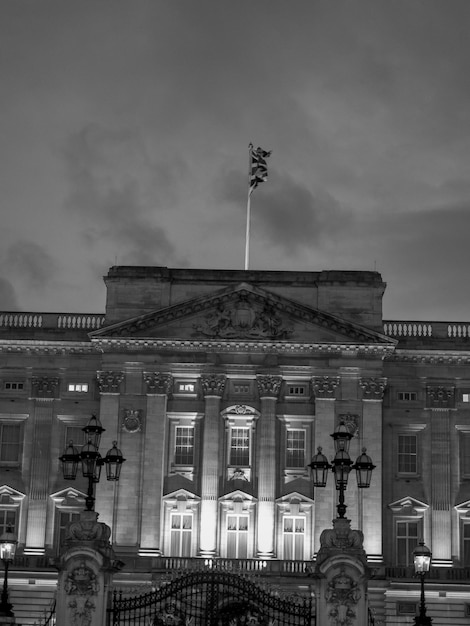Super PACs and Political Influence: Are They Too Powerful?

Understanding the role of Super PACs in shaping political discourse is crucial for evaluating their impact on elections and policy, particularly regarding concerns about whether their financial power unduly influences political outcomes.
The rise of Super PACs has transformed the landscape of American elections, raising critical questions about their influence on political discourse. Understanding the role of Super PACs in shaping political discourse: Are They Too Powerful? is essential to assess the health and fairness of the democratic process.
What are Super PACs?
Super PACs, or independent expenditure-only committees, emerged following the 2010 Citizens United Supreme Court decision. This ruling paved the way for unlimited spending by corporations and unions in political campaigns, provided that such spending is independent of the candidates and parties.
The Legal Foundation
The legal basis for Super PACs lies in the First Amendment’s guarantee of free speech. The courts have often interpreted campaign spending as a form of protected speech, leading to the deregulation of campaign finance laws. However, this interpretation remains highly controversial, with critics arguing that it equates money with speech and gives undue influence to wealthy donors.
Key Differences from Traditional PACs
Unlike traditional political action committees (PACs), Super PACs can raise and spend unlimited amounts of money from individuals, corporations, and unions. Traditional PACs, on the other hand, are subject to contribution limits. Another key difference is that Super PACs are not allowed to directly coordinate with candidates or parties, although this rule is often circumvented through various means.
- Unlimited Spending: Super PACs can spend unlimited amounts of money to support or oppose candidates.
- Independent Expenditures: Spending must be independent of candidates and parties.
- No Contribution Limits: Super PACs face no limits on the size of contributions they can receive.
Super PACs represent a significant shift in campaign finance regulations, allowing for a concentration of financial power in the hands of a few wealthy donors. This has raised concerns about the potential for corruption and the distortion of political discourse.

The Impact on Political Campaigns
Super PACs have a profound impact on political campaigns, influencing everything from advertising strategies to the overall tone of political discourse. Their ability to spend unlimited amounts of money gives them a significant advantage in shaping public opinion.
Advertising and Media Influence
One of the primary ways Super PACs influence political campaigns is through advertising. They can fund television, radio, and online ads that promote or attack candidates. These ads often play a crucial role in shaping voter perceptions and influencing election outcomes.
Shaping Political Discourse
Super PACs can also shape the overall tone of political discourse. By funding negative or attack ads, they can contribute to a more polarized and divisive political climate. This can discourage thoughtful discussion of important issues and make it more difficult for voters to make informed decisions.
- Increased Spending: Super PACs lead to increased overall spending in political campaigns.
- Negative Advertising: They often fund negative or attack ads, contributing to political polarization.
- Influence on Voter Perceptions: Super PACs can shape voter perceptions and influence election outcomes through advertising.
The impact of Super PACs on political campaigns is multifaceted, with both positive and negative consequences. While they can provide valuable resources for candidates and parties, they also raise concerns about the potential for undue influence and the distortion of political discourse.
Arguments For and Against Super PACs
The debate over Super PACs is complex, with strong arguments on both sides. Proponents argue that they are a legitimate form of free speech, while opponents contend that they undermine democracy and give too much power to wealthy donors.
Arguments in Favor
Those who support Super PACs argue that they are a necessary component of free speech. They believe that individuals and organizations should have the right to spend unlimited amounts of money to express their political views. Additionally, some argue that Super PACs can provide valuable resources for candidates and parties, helping them to reach more voters and promote their platforms.
Arguments Against
Critics of Super PACs argue that they undermine democracy by giving too much power to wealthy donors. They contend that unlimited spending can drown out the voices of ordinary citizens and distort political discourse. Additionally, some argue that Super PACs can lead to corruption and undue influence, as candidates and parties may be beholden to the donors who fund them.
- Free Speech: Supporters argue that Super PACs are a legitimate form of free speech.
- Resource Provision: Some believe they provide valuable resources for candidates and parties.
- Undermining Democracy: Critics contend that Super PACs give too much power to wealthy donors.
The arguments for and against Super PACs highlight the tension between free speech rights and the need for a fair and equitable political system. Resolving this tension is a critical challenge for policymakers and citizens alike.
The Role of Money in Politics
The rise of Super PACs has intensified the ongoing debate about the role of money in politics. The ability to spend unlimited amounts of money raises fundamental questions about the fairness and integrity of the democratic process.
Campaign Finance Regulations
Campaign finance regulations are designed to regulate the flow of money in political campaigns. These regulations aim to prevent corruption, promote transparency, and ensure a level playing field for all candidates. However, the effectiveness of these regulations is often debated, particularly in the context of Super PACs.
The Impact on Voter Turnout
The role of money in politics can also impact voter turnout. Some studies suggest that increased spending can discourage ordinary citizens from participating in the political process, as they may feel that their voices are drowned out by wealthy donors. This can lead to a less representative and less democratic political system.

- Preventing Corruption: Campaign finance regulations aim to prevent corruption and undue influence.
- Promoting Transparency: Regulations also seek to promote transparency in political spending.
- Voter Turnout: Increased spending can discourage ordinary citizens from participating in the political process.
The role of money in politics is a complex and multifaceted issue, with no easy solutions. Finding a balance between free speech rights and the need for a fair and equitable political system is a critical challenge for policymakers and citizens alike.
Case Studies of Super PAC Influence
Examining specific case studies can provide valuable insights into the real-world impact of Super PACs. These examples illustrate how Super PACs have influenced elections and shaped political discourse.
The 2012 Presidential Election
The 2012 presidential election saw unprecedented levels of Super PAC spending. Groups like Restore Our Future, which supported Mitt Romney, and Priorities USA Action, which supported Barack Obama, spent millions of dollars on advertising and other campaign activities. These Super PACs played a significant role in shaping the narrative of the election.
The 2016 Presidential Election
The 2016 presidential election also saw significant Super PAC activity. Groups supporting Donald Trump and Hillary Clinton spent millions of dollars on advertising and other campaign activities. These Super PACs played a crucial role in shaping the narrative of the election and influencing voter perceptions.
- 2012 Election: Super PACs played a significant role in shaping the narrative of the election.
- 2016 Election: Super PACs continued to exert influence, shaping the narrative and influencing voter perceptions.
- Local Elections: Super PACs can also influence local elections, often with significant impact due to lower overall spending.
These case studies demonstrate the significant influence that Super PACs can have on elections at all levels. By examining these examples, we can gain a better understanding of the real-world consequences of Super PAC spending.
Potential Reforms and Solutions
Addressing the concerns raised by Super PACs requires considering potential reforms and solutions. These proposals range from campaign finance regulations to constitutional amendments.
Campaign Finance Regulations
One potential solution is to strengthen campaign finance regulations. This could include measures such as limiting the size of contributions to Super PACs, increasing transparency in political spending, and creating a system of public financing for elections. However, these proposals often face legal challenges based on First Amendment grounds.
Constitutional Amendments
Another potential solution is to amend the Constitution to clarify the relationship between money and speech. An amendment could specify that campaign spending is not protected speech or that corporations do not have the same rights as individuals. However, this approach is highly controversial and faces significant political obstacles.
- Strengthening Regulations: This could include limiting contributions, increasing transparency, and creating public financing.
- Constitutional Amendments: An amendment could clarify the relationship between money and speech.
- Promoting Grassroots Activism: Encouraging citizen participation can help counteract the influence of Super PACs.
Finding effective reforms and solutions to address the concerns raised by Super PACs is a complex and challenging task. It requires a broad range of perspectives and a willingness to consider bold and innovative ideas.
| Key Point | Brief Description |
|---|---|
| 💰 Super PAC Definition | Independent expenditure-only committees that can raise and spend unlimited money. |
| 📣 Influence on Campaigns | Shape political discourse through advertising and media influence. |
| ⚖️ Arguments | Differing views on whether they represent free speech or undermine democracy. |
| 🗳️ Potential Reforms | Include campaign finance regulations and constitutional amendments. |
Frequently Asked Questions
▼
The Citizens United decision, delivered in 2010, allowed corporations and unions to spend unlimited amounts of money on political advertising, arguing it was a form of free speech. This ruling paved the way for the creation of Super PACs.
▼
Super PACs can raise and spend unlimited amounts of money from various sources, including individuals, corporations, and unions. Traditional PACs are subject to contribution limits and direct coordination rules.
▼
Super PACs are legally prohibited from directly coordinating with political campaigns or candidates. However, they can independently spend to support or oppose candidates, influencing voter opinions.
▼
Critics argue Super PACs give undue influence to wealthy donors, potentially distorting political discourse and undermining democracy. Concerns also include the risk of corruption due to large financial contributions.
▼
Potential reforms include campaign finance regulations to limit contributions, increase transparency, and explore public financing options. Another approach suggests constitutional amendments concerning campaign spending.
Conclusion
Understanding the role of Super PACs in shaping political discourse is essential for voters and policymakers alike. While they provide a channel for political expression, the potential for undue influence and distortion of the democratic process necessitates ongoing scrutiny and potential reforms to maintain a fair and equitable political system.
